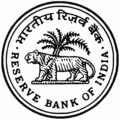An NRI account indicates that the account has been opened by a Non-Resident Indian or a person of Indian Origin with a financial institution or a bank in India. The bank or financial institution must be authorized from Reserve Bank of India to offer opening of NRI Accounts.
A person of Indian Origin (PIO) or a Non-Residential Indian (NRI) has slightly different banking and investment needs. If you are living outside India, a major part of your income and savings will be in foreign currency. If you want to transfer your savings to India then you need a Bank Account which is approved for NRI fund remittance. This fund can be send by NRI in either Rupees or in their foreign currency. There is also a legal requirement to transfer foreign income in NRI Account.
Most of the major banks and financial institutions in India offer this facility so that people can easily open an NRI account. These accounts come with a number of impressive facilities with respect to money transfer-ability, currency denomination, tax, and so many other things. This post is going to explain all the little and useful details of the NRI account and how to open and access it from a foreign place.
Types of NRI Account
Types of NRI Account
- NRE- Non-Resident External Accounts
- NRO- Non-Resident Ordinary Accounts
- FCNR- Foreign Currency Non-Resident Accounts
NRE Accounts meaning:
NRE account full form is Non-Resident External Accounts
Non-Resident External Account transfers foreign earnings to India. NRE account is rupee dominated. You can open this type of account in the form of savings, current, recurring deposits or fixed. This account is tax-exempt. Generally, there is no tax levied on the interest earned from this type of account. These accounts are also easily transferable. You can open NRE account jointly with a close relative who is resident Indian on survivor or former basis.
NRO Accounts meaning:
NRO account full form is Non-Resident Ordinary Accounts
This account is primarily used for depositing rupees that you have earned in India or to deposit foreign earnings in Rupees. When a person goes to Abroad and plans to stay there, his/her resident account will be converted into NRO Account by the bank. But to get that benefit, you have to inform your bank about the departure. This type of accounts is also rupee denominated and you can open it in the form of savings, current, fixed deposits or recurring deposits. NRO Accounts can be opened jointly with any Resident Indian on survivor or former basis.
FCNR Accounts meaning:
FCNR full form is Foreign Currency Non-Resident Accounts
Foreign Currency Non-Resident Accounts can be created in forms of term deposits. You can open these accounts in various currencies such as Australian Dollars, Canadian Dollars, US Dollars, Japanese Yen, Sterling Pounds, Euro, etc.
Maturity periods of term deposits:
- 1 year and above but less than 2 years
- 2 years and above but less than 3 years
- 3 years and above but less than 4 years
- 4 years and above but less than 5 years
- 5 years
Here you will enjoy another benefit and that is an entire deposit (principal+ interest) is tax-free as long as you hold the NRI status and it is easily transferable.
Is it Mandatory to open NRI Accounts?
‘Why NRI account is required’- it is the most common question that people ask after moving overseas from India. It is not a mandatory thing for an NRI to open NRI bank accounts in India but according to FEMA law, it is important to convert your resident bank account to the NRO account.
Importance of NRI Account for overseas Indian
If you live outside India and want to open a bank account in India, the account needs to be in the form of NRI account. The account could be in the form of FCNR, NRE, NRO, or RFC account. An NRI cannot open a resident savings account or a current account. If one already has a saving account with a government or private sector bank or co-operative bank, he/she needs to inform that financial institution about his/her residential status so that the resident account can be converted to the NRO account.
If you do not want to convert the resident account, you can close your account.
NRE fixed deposit is a unique saving instrument for NRIs. Here an NRI does not need to pay tax for NRE fixed deposits in India. And that’s why it has become a favorite fixed-income investment to the NRI community. Here no TDS is applicable to interest earned by NRE FDs.
Parents of some NRIs live in India and to help them they need Indian rupees. You can open NRE OR NRO accounts according to your needs.
It is also the best way to deposit Indian income. An NRO account can help you in saving the rental income along with other income which is earned in India.
Benefits of NRI account
Now it comes to the benefits you can get from NRI accounts. This section will discuss the benefits-
- Tax benefits-In India, both principal and interest amount of NRE savings account are tax-free. According to Income Tax Regulations, savings in the NRO savings account and NRO fixed deposits are subject to TDS. You can easily transfer funds from your NRO account to NRE account.
- Transfer advantages- Both NRE and NRO savings account allow easy transfer of funds (both principal and interest) as here you have the easy repatriation option. All the funds in NRE accounts are always fully. The repatriable term refers to the ability of an account that helps in moving a liquid financial asset from a foreign country to the investor’s own country. But funds in your NRO account can get transferred only post payment of applicable taxes.
- Minimal balance-one does not need to maintain a high balance in his/her NRO or NRE accounts. Recently lots of banks have lowered their minimum balance requirement. Nowadays, most banks require just Rs.10, 000 as a minimum balance. Some private banks require this amount even when one wants to open a resident account.
- FCNR deposit- NRIs have an opportunity of booking Foreign Currency deposits along with NRE/NRO savings accounts and NRE/NRI fixed deposits. So, if one wants to save his/her earnings in foreign currency, he/she can book an FCNR deposit and enjoy the interest in Foreign Currency. Even the interest you earn on that savings in foreign currency is also tax-free in India.
- Convenience benefits– Convenience is another benefit of NRE and NRO accounts. Opening an NRI account is super easy. Even without visiting the branch in India, one can open an NRI account. All you need to do is just fill-up the form online, take a hardcopy, attach the self-attested copy and send it to the bank via courier. Within just two business days, you can successfully open an account and do your required jobs.
When to open an NRI account?
If you presently have a resident bank account and you are planning to settle in a foreign country, you need to inform your bank to get an NRI Account. Your account will be converted into an NRI account. Or before departure, you can inform the bank and open an account.
Conclusion
Saving is important. It helps you to grow in life and help others. When you have support for the future, you perform fearlessly and better. Most major banks are extending their helping hands so that the NRI community can save their earning in Indian currency. It has been noticed that some people save their earning in foreign banks and when they return, they face a lot of problems to bring their savings to their home country. In order to solve this kind of problem, opening an NRI account is the right legal option.



